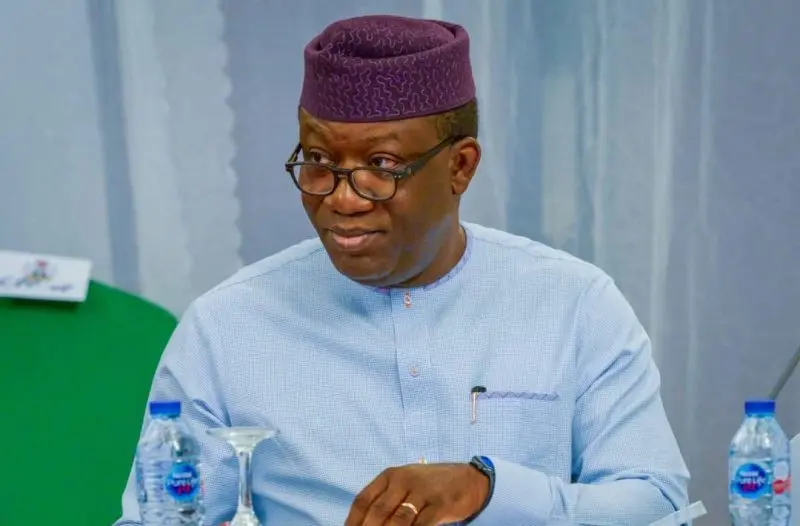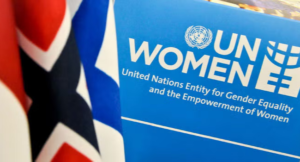
Dr. Kayode Fayemi, the President of the Forum of Regions of Africa, FORAF, and former Chairman of Nigerian Governors Forum, NGF, has called for greater investments and commitment to water security in Africa.
He also made case for increased role for the continent’s mayors and governors in the management of water resources.
Fayemi, who made this known in a seminal speech he delivered at a side event of the UN-Water Conference in New York, US, recently, said the key to water security in Africa laid in its subnational leaders, adding that mayors and city leaders held the key to water security.
He said: “They are closer to citizens and oversee critical investments and decisions related to land use, solid waste, infrastructure, and environmental amenities.
Fani-Kayode tackles British envoy over visa ban threats
They can drive water security and promote low-cost, green, and nature-based solutions. Even where water policies remain highly centralized, mayors are taking bold actions to fix water pipes and institutions.”
He, therefore, called for greater partnerships between national and local leaders in light of the mounting pressures on water resources from climate change, urbanization, and demographic trends.
Fayemi said: “Governors and Mayors in particular, now need to turn the key to unlock the development of better water policies for better lives. As many decisions affecting urban water management are taken outside the water arena and vice-versa (spatial planning, agriculture, energy, etc.), coordination is essential to ensure a whole-of-government approach through which water can become a factor for sustainable growth and contribute to the broader economic, social and environmental agenda.”
In the speech titled: Leveraging City-Basin Governance to Boost Water Security in African Municipalities; Unlocking their Potential to Achieve SDG 6 in Africa, Fayemi discussed the water crisis in Africa and the need to achieve SDG 6 targets by 2030, highlighting the challenges faced by African countries in terms of too little, too much, and too dirty water, with COVID-19 exposing critical gaps in water and sanitation services.
He noted that poor water quality was the root cause of 70-80% of diseases in Africa, with lack of access to safe water disproportionately affecting women and girls. ”Lack of access to safe water has clear gender impact as the burden of securing water falls disproportionately on women and girls with consequences for their income and educational opportunities. Lack of sanitation also creates specific risks for women and girls’ safety,” he said.
The President of FORAF stated that Africa was still deeply water-insecure, with data from the UN’s first-ever assessment of water security in Africa indicating that not a single country is at the highest “model” stage of water security, explaining that Weak governance exacerbates these water challenges, leading to conflicts over water resources.
He further highlighted the importance of integrated basin governance systems in addressing the mismatch between hydrological and administrative boundaries, noting that river basin organizations are critical tools for coordinating water policy at the territorial level, promoting sound hydrological cycle management, and fostering adaptive and mitigation strategies.
Fayemi proposed building a “City-Basin Dialogue” to move towards sustainable water management in Africa and called for urgent action to improve data collection and monitoring of water resources for Africa to accelerate progress on SDG 6.
He also called on all stakeholders to collaborate in developing better water policies that can contribute to the broader economic, social, and environmental agenda of Africa.








